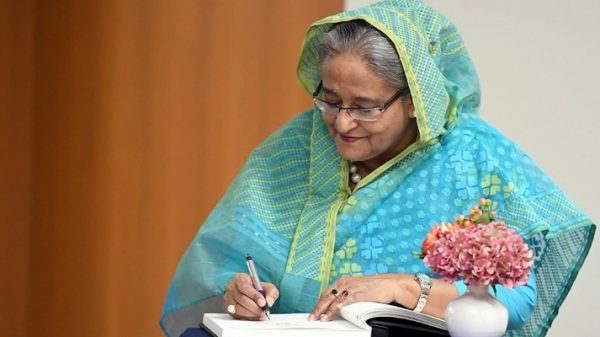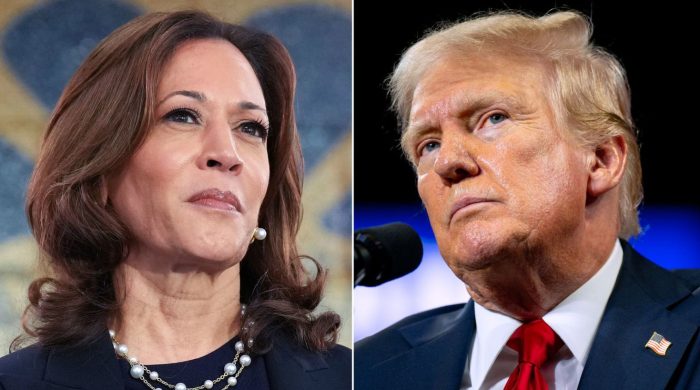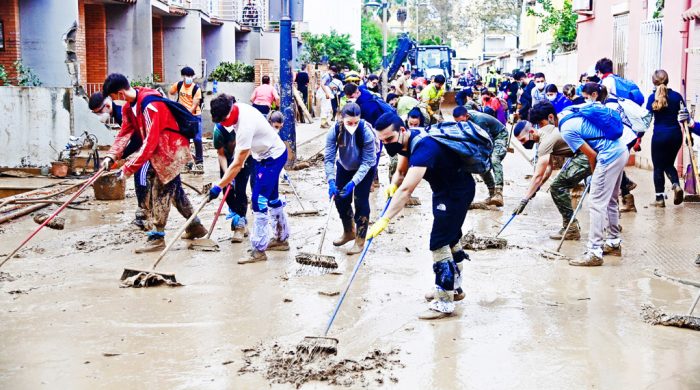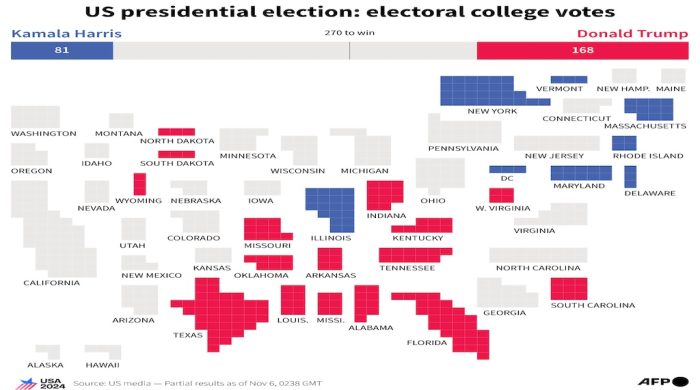Women’s rights in the spirit of Mujib

- Update Time : Monday, March 8, 2021
- 120 Time View

In every age, poets, litterateurs, artistes and social reformers came, preached about women’s rights and fought for women’s emancipation. They tried to protect women from social prejudices and took initiative to make the society aware.
In this land, the Father of the Nation Bangabandhu Sheikh Mujibur Rahman played the bravest role in empowering women. He created opportunities for establishing women’s rights in real life, not just through words and writing. He has liberated the country. He also spoke about equal rights of all citizens of the independent country. “We will break this archaic social norm and build a new one,” was his avowed conviction. Therefore, he took time-befitting steps to establish women’s rights by changing traditional social mindset.
The women of Bangladesh are now deriving the benefits of Bangabandhu’s efforts in this regard. Today, women have managed to strengthen their position in state affairs.
Biswa kabi Rabindranath Tagore was also aware of women’s right. Hence he pleaded,
‘Narike apon vagyo joy koribar/ keno nahi debe odhikar/ he bidhata’. The Tagore family of Jorasanko in Kolkata was rich in modern thought and ideology. This family has contributed a lot to take the society forward. They also played a leading role in the spread of education, cultural practices and the eradication of superstitions.
Bangladesh’s National Poet Kazi Nazrul Islam writes, ‘Bishwe ja kichhu mohan srishti, chiro kolyankor/ ordhek tar koriachhe nari/ ordhek tar nor’. Through his poems, he has depicted the contribution of women to society, acknowledged their roles and conveyed the message that there is no scope to look down upon women. In every sphere of society, women have contributed to the achievement of men. Her sacrifice, motivation and encouragement give strength and courage to men. So, it is not right to forget that contribution. Poet Nazrul believed in modern thought and secular ideology.
During the Liberation War of Bangladesh, mothers sent their sons to the war, sisters sent their brothers and wives sent their husbands. They have inspired them, and also accompanied them to some extent. Thus the women played an immense role in the Liberation War.
After the victory in the war, the first Constitution of Bangladesh drafted by the Father of the Nation Sheikh Mujibur Rahman has given clear guidelines on equal rights for women. Articles 17, 19, 28, 29 of the Constitution have ensured equal rights for women by inserting the obligation to create equal opportunities for women in education and employment.
The Father of the Nation Bangabandhu Sheikh Mujibur Rahman has explicitly mentioned about women’s rights in his books The Unfinished Memoirs, Prison Diaries and Amar Dekha Noya Chin. He also spoke about the solution to their problems and sorrows.
In 1952, Bangabandhu Sheikh Mujib had gone to China to attend a peace conference. On the way to China, he had to go to Burma (Myanmar) and Hong Kong. During his stay there, he not only saw new places, but also deeply observed the state of society and the socio-economic affairs of the common people. In particular, he has highlighted the issues of economic misery of women in his writings. He gave his valuable opinions and thoughts on social issues in these books.
En route to the New China and during his stopover in Hong Kong, he had keenly observed social system, and social discrimination and violence against women, which he narrated in this way, “What is the use in blaming these girls? They are struggling to survive in this social system, earning a livelihood at the cost of their honour. Alas, mankind! Many girls are seen roaming on the streets of Hong Kong like this. … The country is owned by the English, not the people.’ (Amar Dekha Noya Chin, page-99)
His heart was touched by the plight of women. Hong Kong was then an English colony. People had no power. The people there were the victims of indescribable exploitation and deprivation. So, he repeatedly mentioned about the responsibilities of the government in providing people with food, clothing, shelter, health and education. He also spoke about the responsibilities of the society.
During the peace conference in China, he observed the condition of people from different walks of life. About women’s empowerment he wrote, “‘Today in Nayachin, girls have made inroads in every profession, working in tandem with men. They have proved that the Almighty has created men and women with equal power. Given a chance, they too can be scientists, historians, doctors, warriors and everything.” (Amar Dekha Noya Chin, page-99)
A group wants to keep girls confined within four walls in the name of religion. That is why Bangabandhu Sheikh Mujib mentioned: “The Muslim country Turkey has recognised the freedom of women. Women have advanced much in that country. There are many female pilots in Turkey who are among the best pilots in the world. … Some educated/uneducated people in our country think that for girls paradise lies beneath the feet of men. So, men can do whatever they want. Girls have to silently endure all injustices in the hope of heaven. More importantly, girls are made financially dependent on men.”
Islam has given full freedom to women. It is not that girls will stay at home, will not go out, will be dependent or will depend only on men’s earnings. On the contrary, even in the time of Nabiji, girls had enough freedom. They played a role alongside men, even on the battlefield. He also wrote, “ …But reading the history of Islam it can be known that Muslim girls used to go to the battlefield with men and carry weapons. They used to take care of the injured. Hazrat Ayesha, the wife of the Prophet Muhammad (SAW) used to deliver speech herself. It is Islam that has given rights to women in the world.” (Amar Dekha Noya Chin, page-100)
In order to help flourish women leadership, Bangabandhu introduced a provision in the Constitution to reserve seats for women in the National parliament. In 1972, in just nine months, he drafted this Constitution. He set a rare example in ensuring women’s rights.
There were no crimes against humanity, including mass killing, rape of women, lootings in houses and arson attacks, the Pakistani occupation force and their local collaborators – Al-Badr, Razakar and Al-Shams – did not do during the Liberation War. The collaborators used to seize our girls and send them to Pakistani camps. Bangabandhu had arranged for the treatment of these victims after the country achieved independence. With the view to recognising their contribution to the Liberation War and honouring them, he awarded them with the title ‘Birangana’ so that these ill-fated women can lead their lives with dignity. He even arranged for the marriage of many of the victims and had their livelihood arranged. Many of the victims’ fathers were unwilling to recognise their daughters when their marriages were arranged as they (the victims’ fathers) were afraid of facing social humiliation. Bangabandhu asked to write his name and address of his house in the position fixed for writing the names of the brides’ fathers and address respectively in marriage resister. Bangamata had directly supervised those marriages.
In the government jobs, a 10 per cent quota was reserved for women where Biranganas have priority. All these were landmark initiatives.
During the Pakistani era, women were restricted by the law to enter judiciary services. They could not become a judge. However, Bangabandhu abolished such a law after independence and allowed women in all services. He appointed female police personnel because he believed that if a woman could become economically self-dependent, her position would be strengthened in her family and society. She can earn respect and give her opinion in family affairs. He said, “If a woman can earn even Tk 10, her importance in the family would increase.”
I have heard these words so many times from my father. These words mean the self-dependence of women. In our society, a male member of a family earns for family expenditure while female members, along with others, have to be dependent on him. But every individual has to be self-dependent and education and training could provide that opportunity. This is why Bangabandhu made female education free of cost. He relieved parents from education expenditure.
It is mentioned in Article 17 (a) of the Constitution that, “The State shall adopt effective measures for the purpose of a. establishing a uniform, mass-oriented and universal system of education and extending free and compulsory education to all children to such stage as may be determined by law.”
Here girls have been mentioned specially to ensure female education and to give them importance.
Begum Rokeya gave importance to female education. She said in her novel Padmarag, “Allow your daughters in the workplaces after education, and allow them to earn their livelihood by themselves.”
A society consists of male and female. Development of the society cannot be imagined discarding women who constitute half of the total population. Gender bias jeopardizes progress of a family, society and country at large.
Gender equality is underpinning for socioeconomic development.
If a nation really wants to be developed, it will have to evaluate efforts and potentials of men and women.
Fundamental principles of state policy of Bangladesh are enshrined in Article 19 (3) of the Constitution which reads, “The State Shall endeavour to ensure equality of opportunity and participation of women in all spheres of national life.” So, the highest charter of the country has guaranteed gender equality in all spheres including access to public services.
“If women of a country are confined to house and used for procreating child, it will never see socioeconomic development,” says the Father of the Nation Bangabandhu Sheikh Mujibur Rahman.
He realised necessity of gender equality 69 years ago in 1952. He harboured such farsighted and progressive idea at an era which was under the grip of superstition. Men and women have to work together dismantling the wall of social taboos for inclusive development and economic emancipation.
Article 28 (2) under the Fundamental Chapter of the Constitution negates any discrimination on ground of race, caste and sex.
“Women shall have equal rights with men in all spheres of the State and of public life,” it states.
As Bangabandhu visited China, he was impressed to see women participation in official, industrial and agricultural jobs therein.
The new China is marked by women participation in agricultural, industrial and military services, he said.
“More than 40 of the employees in the factories, industries and government offices visited by me were women.”
Gender equal participation in all works has paved the way for tremendous development of China, he said.
Chinese women have responded positively to nation building and country’s forward journey. (Amar Dekha Noya Chin, page-99)
The Constitution gifted by Bangabandhu in 1972 includes an expression “equal right” to put women on a par with men in the job sector.
Article 29 (1) of the Constitution reads: “There shall be equality of opportunity for all citizens in respect of employment or office in the service of the Republic.”
The State is constitutionally bound to emancipate the toiling masses, the peasants and workers and backward sections of the people from all forms of exploitation.
“Nothing in this article shall prevent the State from –(a) making special provision in favour of any backward section of citizens for the purpose of securing their adequate representation in the service of the Republic;” says Article 29 (3) of the Constitution.
It was really a bold and milestone step on the part of Bangabandhu to have included gender equality clauses in the country’s highest charter 49 years ago. He paved the way for honourable position of the women in the society.
Following the principles of Bangabandhu, the Awami League government has been working to empower women. It was the first to adopt National Women’s Policy in 1997. Children’s identities were made associated with mother alongside father, bringing major reforms in the longstanding patriarchal system. Maternity leave for women employees at public and private sectors was extended from three months to four months. It was further hiked to six months.
The country did not see any female judge in the apex court previously. We are first to promote female officers of BCS administrative cadre to the post of secretary. Accordingly, the female officers started to be appointed as DCs, SPs and OCs across the country. Women participation in all tiers of the administration is rampant.
Female officers are being recruited in army, air force, navy, border security force and pilot of national flag carrier Biman Bangladesh Airlines. Besides, the Marine Academy is imparting education to both male and female to peruse career in the lucrative field.
About 2.53 crore students from primary to higher levels are subjected to stipends and other financial assistance. Female candidates constitute 70 per cent of the recipients of Prime Minister’s fellowship for higher education and PhD.
To boost social safety net, the government is distributing allowances among widows, abandoned and elderly women. It has also introduced maternity and lactation allowances. Meanwhile, insolvent pregnant and other females enjoy healthcare facilities, medicines and meals for free. The women are not burden to their families. They are no more stereotype derogatory characters.
Several draconian laws have been enacted for the protection of women and children. Female entrepreneurs are getting loan at low interest.
The government is establishing 100 economic zones across the country with special provision to allocate plots to the women investors.
The Joyeeta Foundation — an initiative of Ministry of Women and Children Affairs to support women’s ventures and financially empower women — is operating. Apart from creating market for women ventures, the organisation has generated huge employments.
The government has reserved 60 per cent of the primary teacher posts for females. The provision has encouraged girls about higher education while parents are not allowing dropout.
Union Digital Centres (UDCs) have created ample opportunities for women entrepreneurs and employments at the grassroots level.
The females are getting job opportunity in community clinics, Tothya Apa, Amar Bari Amar Khamar, and other projects. They can engage in agricultural, industrial and all other sectors.
As far as the Liberation War is concerned, the nation owes to womenfolk for their tremendous contribution and sacrifice. Bangabandhu rightly wanted women to be playing due role in all sectors. The expectation aimed at alleviating poverty and expediting socioeconomic development. The Awami League government is working following his roadmap.
Bangladesh had got the status of least developed country under the apt leadership of Bangabandhu who pulled the war ravaged country in just three and a half years. The country has stepped into a new journey by qualifying to graduate into a developing nation.
The United Nations Committee for Development Policy has recommended Bangladesh’s graduation from LDC status.
Bangladesh is not far from becoming “Sonar Bangla” as envisaged by the Father of the Nation. The dream of Bangabandhu must come true.
(The writer is the eldest daughter of the Father of the Nation Bangabandhu Sheikh Mujibur Rahman and the Prime Minister of Bangladesh)

























